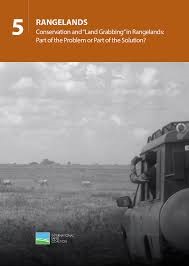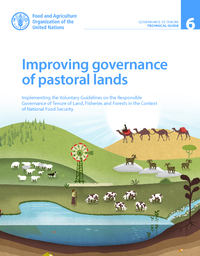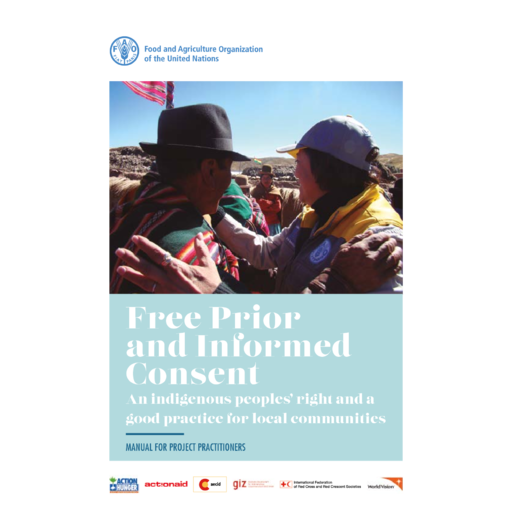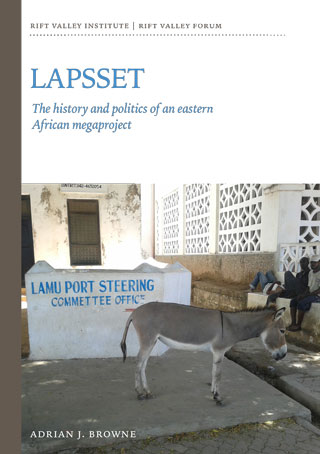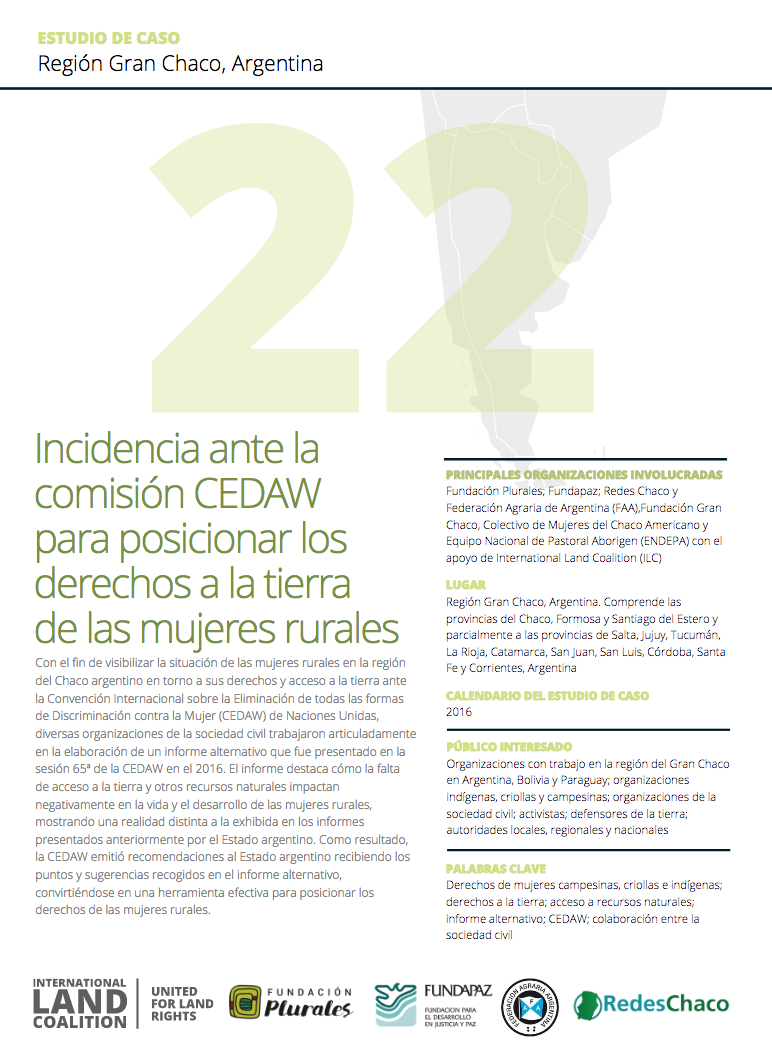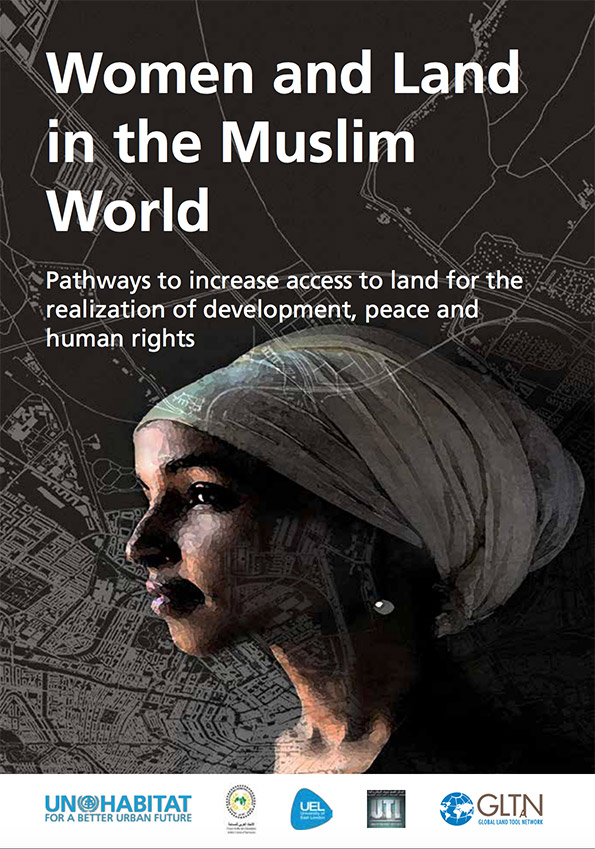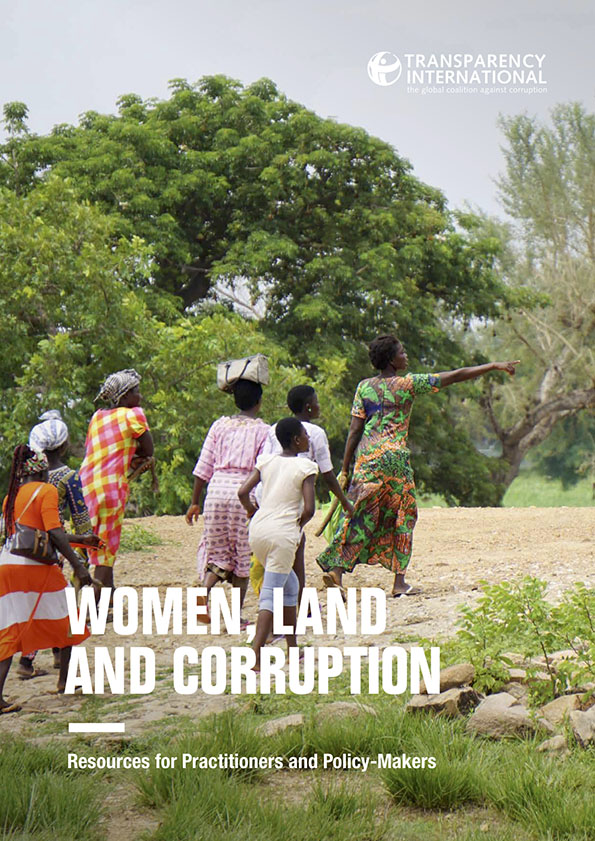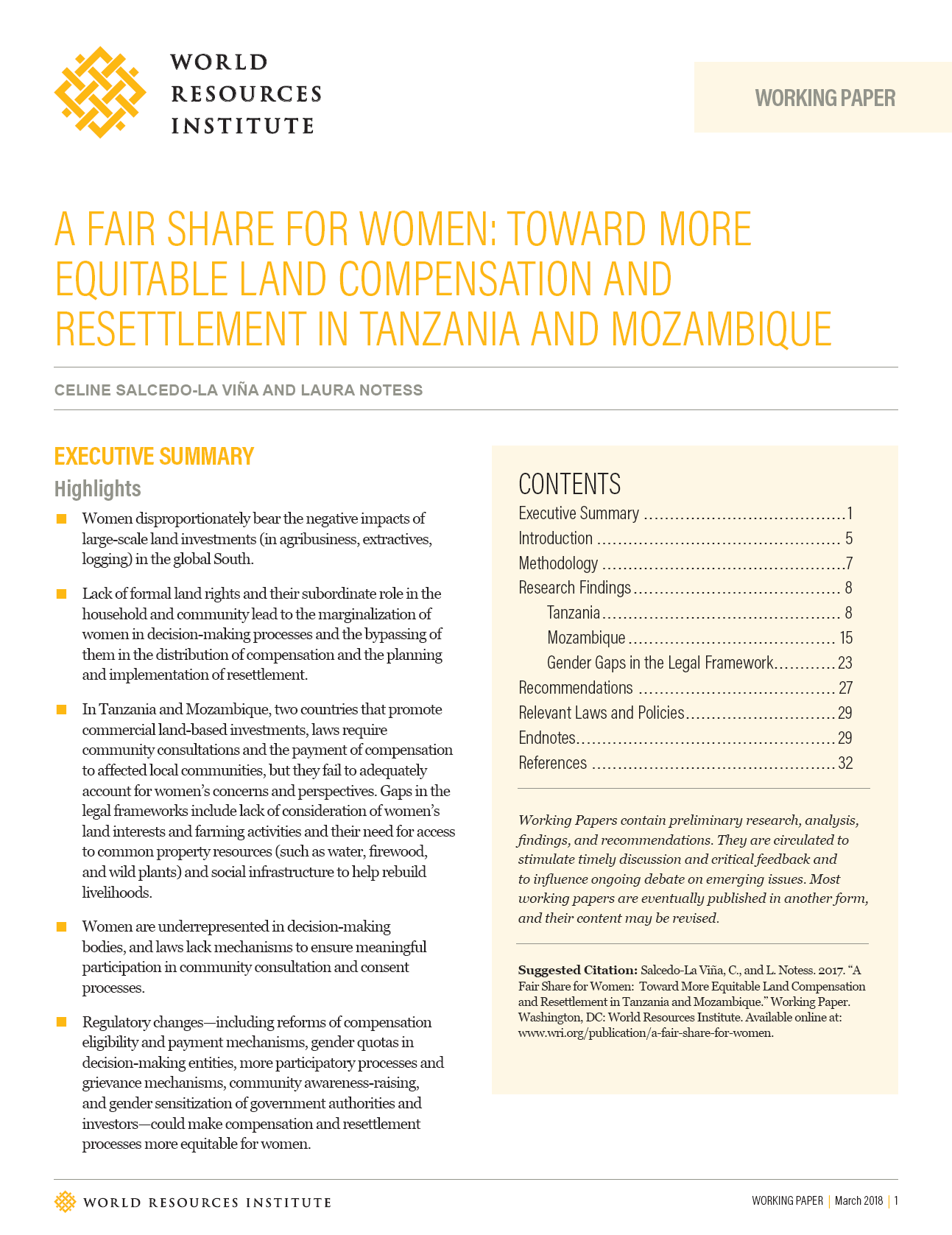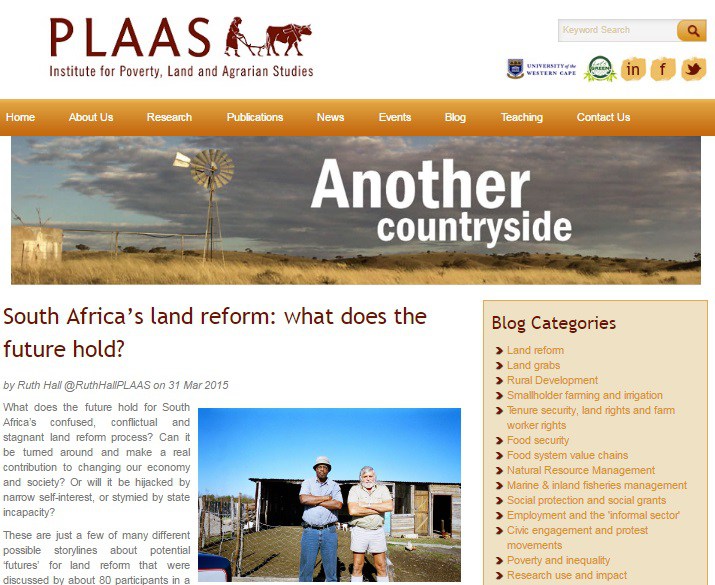Derechos de tierras
AGROVOC URI:
Conservation and “Land Grabbing” in Rangelands: Part of the Problem or Part of the Solution?
Large-scale land acquisitions have increased in scale and pace due to changes in commodity markets, agricultural investment strategies, land prices, and a range of other policy and market forces. The areas most affected are the global “commons” – lands that local people traditionally use collectively — including much of the world’s forests, wetlands, and rangelands. In some cases land acquisition occurs with environmental objectives in sight – including the setting aside of land as protected areas for biodiversity conservation.
Improving governance of pastoral lands - Implementing the Voluntary Guidelines on the Responsible Governance of Tenure of Land, Fisheries and Forests in the Context of National Food Security
The technical guide on improving the governance of pastoral lands is designed for several audiences including government and non-government actors. It covers specific challenges of pastoral tenure that are unique to pastoralism and considers how these different facets of pastoralist tenure (issues of the commons; free, prior and informed consent (FPIC); gender etc.) can be combined in a coherent approach to securing pastoral lands.
Free Prior and Informed Consent - An indigenous peoples’ right and a good practice for local communities
This manual is designed to assist development organizations to respect the right to FPIC when developing and implementing projects affecting Indigenous Peoples. It contains a six-step procedure to facilitate the FPIC process while showing its benefits, as well as provides the regulatory framework to be used when mainstreaming Indigenous Peoples’ rights within organizations’ policies and standards.
Engendering Access to Justice Grassroots women’s approaches to securing land rights
This report presents grassroots women’s approaches to access justice with focus on land and property rights in Africa. This community empowerment-based research undertaken by the Huairou Commission and its partner groups across seven African countries – Cameroon, Ghana, Kenya, Tanzania, Uganda, Zambia and Zimbabwe – showcases women’s rights challenges and effective strategies to improve women’s access to justice.
LAPSSET The history and politics of an eastern African megaproject
‘This study is in-depth, up-to-date and the first of its kind on a massive infrastructure development project in the region, examining its history, politics, evolution, the emergence of actors and interests and effects on the poor and marginalized. It presents the ambitions and ambiguities of a megaproject never seen in the development history of the region. The report is a comprehensive analysis of the hopes and fears emanating from a megaproject in the region and provides invaluable data on which future studies will certainly have to rely.’
Incidencia ante la comisión CEDAW para posicionar los derechos a la tierra de las mujeres rurales
Con el fin de visibilizar la situación de las mujeres rurales en la región del Chaco argentino en torno a sus derechos y acceso a la tierra ante la Convención Internacional sobre la Eliminación de todas las formas de Discriminación contra la Mujer (CEDAW) de Naciones Unidas, diversas organizaciones de la sociedad civil trabajaron articuladamente en la elaboración de un informe alternativo que fue presentado en la sesión 65ª de la CEDAW en el 2016.
Women and Land in the Muslim World
This publication provides practical and evidence-based guidance on how to improve women’s access to land as an essential element to achieve social and economic development and enjoyment of human rights, peace and stability in the specific context of the Muslim world. The challenges faced by women living in Muslim contexts do not substantially differ from those faced by women in other parts of the world: socially prescribed gender roles, unequal power dynamics, discriminatory family practices, unequal access to justice are the most common.
Women, Land and Corruption
Women, Land and Corruption is a collection of unique articles and research findings that describe and analyse the prevalence of land corruption in Africa — and its disproportionate effect on women — pr
A Fair Share for Women: Toward More Equitable Land Compensation and Resettlement in Tanzania and Mozambique
Tanzania and Mozambique — countries of vast mountain ranges and open stretches of plateaus — now face a growing land problem. As soil degradation, climate change and population growth place enormous strains on the natural resources that sustain millions of people, multinational companies are also gunning for large swaths of land across both countries. Caught between these pressures, many poor, rural communities get displaced or decide to sell their collectively held land.
South Africa’s land reform: what does the future hold?
What does the future hold for South Africa’s confused, conflictual and stagnant land reform process? Can it be turned around and make a real contribution to changing our economy and society? Or will it be hijacked by narrow self-interest, or stymied by state incapacity? These are just a few of many different possible storylines about potential 'futures' for land reform that were discussed by about 80 participants ina meeting to kickstart a scenario planning process for South Africa's land reform,at the Gordon Institute for Business Science (GIBS) in Johannesburg yesterday
Restitution of Land Rights Act 22 of 1994 - The Land Claims Court of South Africa
To provide for the restitution of rights in land to persons or communities dispossessed of such rights after 19 June 1913 as a result of past racially discriminatory laws or practices; to establish a Commission on Restitution of Land
Rights and a Land Claims Court; and to provide for matters connected therewith.
[Long title substituted by s. 31 of Act 63/97]


